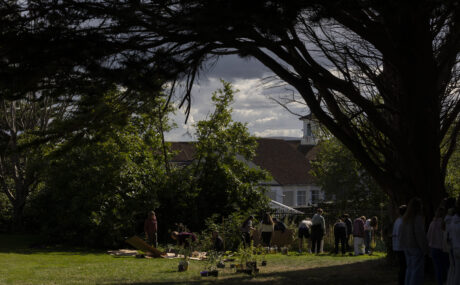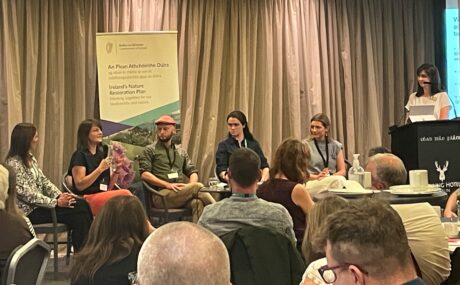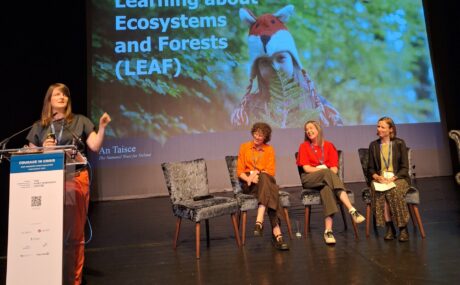Forests play a vital role in sustaining water resources and aquatic ecosystems. Forests act as giant sponges, soaking up rainfall during wet seasons and releasing it slowly during drier times. Forests can also help reduce the severity of flash floods downstream through the sponge effect and by blocking the path of the water with tree trunks, branches and other forest litter. Forests provide natural filtration and can help improve stream quality and watershed health by decreasing the level of storm water runoff and pollutants that reach local waters. Trees also absorb nutrients and pollutants and transform them into less harmful substances. Forests maintain high water quality by minimising soil erosion and reducing sediment. In contrast, deforestation often increases soil erosion that results in higher sediment concentrations in the runoff and siltation of watercourses. Furthermore, Forests recycle rainfall and groundwater to support continental-scale and intercontinental-scale hydrological cycles. Deforestation and forest degradation in one area can have an impact on rainfall patterns in other parts of the world.
Forest disturbance can have a profound effect on the hydrologic, geomorphic and ecologic processes. Disturbance can include both natural (e.g. drought, disease, wildfire, storms) and human (e.g. Land conversion, agriculture, timber harvesting). Natural disturbances are becoming more frequent and catastrophic due to climate change. This, together with growing human disturbance will affect the quality of water and its availability.
We encourage participants to examine the relationship between forests and water and to investigate the challenges in maximising the wide range of multi-sectoral forest benefits (domestic, agricultural, industrial, and ecological) without detriment to water resources and ecosystem function. Most importantly, we encourage participants to come up with practical solutions that help ensure high water quality and help raise awareness about the importance of protecting our forests.
Case studies
Children’s attention was drawn to the importance of trees in the environment in a very positive way
It was a joy to work on the programme with the children, we all found it so interesting
The programme is incredibly enjoyable and very beneficial to all pupils
Related News
Videos
Learning about Forests celebrated 15 years of success in 2015! LEAF is a programme of the Foundation for Environmental Education (FEE). The LEAF programme was initiated in 1999 by the Forest in Schools programmes in Norway, Sweden and Finland, in cooperation with FEE, and was rolled out in the spring of 2000. The LEAF programme was successfully transferred to the FEE Head Office, Copenhagen, in 2014 and is now coordinated by FEE at an international level. Globally, there are twenty-three countries participating in the LEAF programme. The LEAF programme aligns itself with Education for Sustainable Development (ESD) and the Global Action Programme (GAP).








